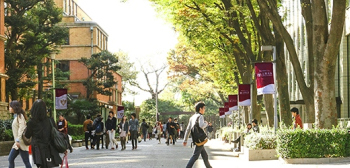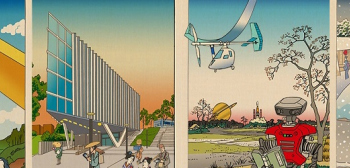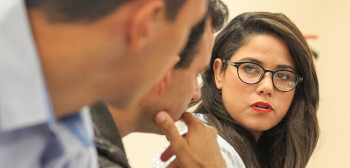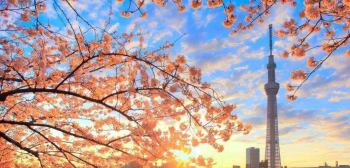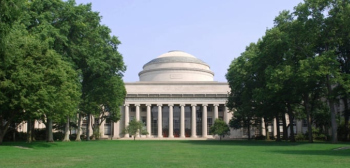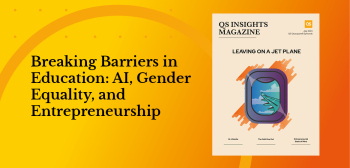京都大学
About
Kyoto University is one of Asia’s leading research-oriented institutions and is famed for producing world-beating researchers, including 13 Nobel Prize laureates.
The motto of the school, which was founded in 1897, is “freedom of academic spirit”, a value it aims to instill on the 22,000 students enrolled on its undergraduate and graduate programs.
Kyoto ranks competitively in most major rankings, usually coming in the top two for Japan, the top 10 for Asia, and in the top 50 universities globally, making it a major player on the university scene.
The main Yoshida campus has been at the core of the university since its founding, and is notable for its fascinating architecture, encompassing a variety of styles, from brick buildings such as the Clock Tower Centennial Hall (a symbol of the university) to modern laboratory buildings.
Other campuses include Uji campus, which hosts research institutes, state-of-the-art laboratories and testing facilities, and Katsura campus, conceived as a “technoscience hill”. Mixing the traditional and cutting edge, there is therefore no one typical student experience at Kyoto, though what is common to all students is the sense of belonging to an academic community at the forefront of new scholarly horizons, in particular when it comes to new technologies and meeting global challenges.
For those interested in Japanese culture, the city of Kyoto will be of interest as it’s the birthplace of manga and was the capital city of Japan for over 1,000 years. Numerous cultural assets cultivated throughout its long history remain all over the city, and one in every 10 people there is a university student – by far the highest proportion of any Japanese city.
Kyoto is also blessed with an abundance of nature, surrounded by mountains and tranquil temple gardens. Parts of the city are also a conservation hub. Compared with Osaka or Tokyo, the cost of living in Kyoto is relatively low; as the city center is fairly compact, students can travel around safely by bicycle.
About
Kyoto University is one of Asia’s leading research-oriented institutions and is famed for producing world-beating researchers, including 13 Nobel Prize laureates.
The motto of the school, which was founded in 1897, is “freedom of academic spirit”, a value it aims to instill on the 22,000 students enrolled on its undergraduate and graduate programs.
Kyoto ranks competitively in most major rankings, usually coming in the top two for Japan, the top 10 for Asia, and in the top 50 universities globally, making it a major player on the university scene.
The main Yoshida campus has been at the core of the university since its founding, and is notable for its fascinating architecture, encompassing a variety of styles, from brick buildings such as the Clock Tower Centennial Hall (a symbol of the university) to modern laboratory buildings.
Other campuses include Uji campus, which hosts research institutes, state-of-the-art laboratories and testing facilities, and Katsura campus, conceived as a “technoscience hill”. Mixing the traditional and cutting edge, there is therefore no one typical student experience at Kyoto, though what is common to all students is the sense of belonging to an academic community at the forefront of new scholarly horizons, in particular when it comes to new technologies and meeting global challenges.
For those interested in Japanese culture, the city of Kyoto will be of interest as it’s the birthplace of manga and was the capital city of Japan for over 1,000 years. Numerous cultural assets cultivated throughout its long history remain all over the city, and one in every 10 people there is a university student – by far the highest proportion of any Japanese city.
Kyoto is also blessed with an abundance of nature, surrounded by mountains and tranquil temple gardens. Parts of the city are also a conservation hub. Compared with Osaka or Tokyo, the cost of living in Kyoto is relatively low; as the city center is fairly compact, students can travel around safely by bicycle.
University highlights
- 2012#35
- 2014#=35
- 2015#36
- 2016#38
- 2017#=37
- 2018#=36
- 2019#35
- 2020#=33
- 2021#38
- 2022#33
- 2023#36
- 2024#46
- 2025#=50
- 2026#57
Campus locations
Yoshida Campus,
Yoshida-Honmachi , Kyoto City , Kyoto Prefecture , Japan , 606-8501
Similar Universities
上智大学
7-1 Kioi-cho, Tokyo
CENTRO
Constituyentes 455, Ciudad de México
澳门旅游大学(原名:澳门旅游学院)
Colina de Mong-Há,
索诺拉大学
Blvd. Luis Encinas y Rosales S/N, Hermosillo
Related content

全球大学100强

东京大学VS京都大学
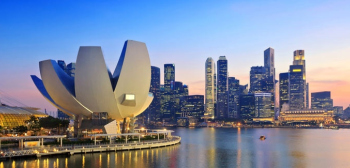
新加坡的顶尖大学:新加坡国立大学VS南洋理工大学



